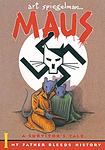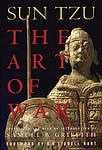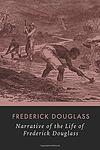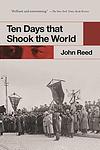The Greatest "Nonfiction, Military" Books of All Time
Click to learn how this list is calculated.
This list represents a comprehensive and trusted collection of the greatest books. Developed through a specialized algorithm, it brings together 300 'best of' book lists to form a definitive guide to the world's most acclaimed books. For those interested in how these books are chosen, additional details can be found on the rankings page.
Genres
The Military category of books encompasses a wide range of literature that focuses on the armed forces, their operations, and the individuals who serve in them. This genre includes both fiction and non-fiction works that cover topics such as military history, strategy, tactics, and personal accounts of soldiers' experiences. Military books often explore themes of bravery, sacrifice, and the impact of war on individuals and society. They provide readers with a glimpse into the world of the military and the challenges faced by those who serve their country.
Countries
Date Range
Reading Statistics
Click the button below to see how many of these books you've read!
Download
If you're interested in downloading this list as a CSV file for use in a spreadsheet application, you can easily do so by clicking the button below. Please note that to ensure a manageable file size and faster download, the CSV will include details for only the first 500 books.
Download-
1. If This Is a Man by Primo Levi
This book is a deeply moving and insightful memoir of a survivor of Auschwitz, a Nazi concentration camp during World War II. The author, an Italian Jew, provides a detailed account of his life in the camp, the brutal conditions, the dehumanization, and the struggle for survival. The narrative is a profound exploration of the human spirit, resilience, and the will to live, despite unimaginable horror and suffering. It also raises profound questions about humanity, morality, and the capacity for evil.
-
2. Maus by Art Spiegelman
This graphic novel tells the story of a Holocaust survivor, as narrated by his son. The unique use of animals to represent different nationalities and ethnic groups adds a distinctive layer to the narrative. The protagonist's father recounts his experiences as a Polish Jew during World War II, offering a poignant depiction of the horrors of the Holocaust. The narrative also explores the complex father-son relationship, revealing the impact of such traumatic historical events on subsequent generations.
-
3. The Art of War by Sun Zi
This ancient Chinese military treatise, written by a renowned general and military strategist, is a comprehensive guide on military strategy and tactics. It covers various aspects of warfare, from planning and preparation to execution and aftermath. The work emphasizes the importance of understanding one's enemy, using deception, and adapting to changing circumstances. It also stresses the importance of terrain, morale, and leadership. Despite its military focus, its principles have been applied to business, politics, and other fields, making it a timeless classic on strategy.
-
4. Dispatches by Michael Herr
This book is a first-hand account of the Vietnam War from a war correspondent's perspective. The author vividly describes the chaos, violence, and absurdity of the war, providing a raw and unfiltered look at the experiences of soldiers on the ground. The narrative is filled with gritty details and intense imagery, capturing the fear, boredom, and disillusionment that characterized the war. The book is considered a classic of war reportage, lauded for its honest and brutal portrayal of the realities of combat.
-
5. Narrative of the Life of Frederick Douglass by Frederick Douglass
This autobiographical book provides a first-hand account of the life of a former slave, chronicling his experiences from his early years in bondage, his struggle to teach himself to read and write, his daring escape to freedom, and his subsequent rise as a prominent abolitionist. The narrative is a powerful exploration of the physical and psychological effects of slavery, making it a significant work in American history.
-
6. Testament Of Youth by Vera Brittain
Testament of Youth is a poignant memoir detailing the author's experiences during World War I. The narrative follows her journey from her early life, her time as a Voluntary Aid Detachment nurse serving in London, Malta, and France, and her later years as a writer and pacifist. The author's personal loss, including the death of her fiancé and her brother, and the impact of the war on her generation, is a central theme, offering a unique female perspective on the devastating effects of war.
-
7. Hiroshima by John Hersey
This book provides a detailed account of the aftermath of the atomic bombing of Hiroshima during World War II, as experienced by six survivors. The narrative follows the survivors from the moment of the explosion to their lives in the following years. It explores their struggles, their resilience, and the profound physical, emotional, and social impacts of the event, offering a poignant examination of the human capacity to endure and rebuild in the face of unimaginable devastation.
-
8. The Second World War by Winston Churchill
This book provides a comprehensive overview of the Second World War from the perspective of one of its most influential leaders. It covers the entire span of the war, from its origins in the political and economic turmoil of the 1930s, to the major battles and strategic decisions that shaped its course, to its aftermath and impact on the world. The author's unique perspective and firsthand experience, combined with his eloquent and insightful writing, make this a definitive account of one of the most important events in modern history.
-
9. Good-Bye to All That by Robert Graves
This memoir provides a candid and unflinching look at the horrors of World War I, as experienced by a young British officer. The narrative explores the brutality and futility of war, the author's struggle with shell shock, his disillusionment with the military and British society, and his decision to leave England for a new life abroad. It also offers insights into the author's personal life, including his troubled marriage and his relationships with other prominent figures of the time.
-
10. The History of the Peloponnesian War by Thucydides
This book is a historical account of the Peloponnesian War between the city-states of Athens and Sparta in ancient Greece. The author, an Athenian general, provides a detailed narrative of the war, its causes, and its consequences, offering valuable insights into the political and social dynamics of the time. The work is considered a pioneering piece in the field of history due to its rigorous methodology and critical analysis of events.
-
11. The Making of the Atomic Bomb by Richard Rhodes
This comprehensive book provides an in-depth account of the development of the atomic bomb during World War II. It explores the scientific advancements that made the bomb possible, the political decisions that led to its creation, and the moral dilemmas faced by the scientists involved. The book also details the personalities of key figures in the Manhattan Project, the effects of the bomb on Hiroshima and Nagasaki, and the impact of nuclear weapons on the world.
-
12. Reflections on the Revolution in France by Edmund Burke
This book is a political pamphlet written in the 18th century, where the author criticizes the French Revolution, arguing that it has gone too far in its quest for radical change. He asserts that the revolutionaries, in their rejection of tradition and their embrace of abstract notions of liberty and equality, have overlooked the complexities of real social and political life. The author advocates for gradual, prudent reform rather than sudden, violent change and emphasizes the importance of tradition and inherited institutions.
-
13. The Guns of August by Barbara Tuchman
"The Guns of August" is a detailed and engaging account of the first month of World War I. The book explores the events leading up to the war, the political and military strategies of the various countries involved, and the critical decisions that shaped the course of the conflict. It presents a vivid picture of the war's early stages, highlighting the miscalculations, miscommunications, and misunderstandings that led to one of the most devastating wars in history.
-
14. Ten Days That Shook the World by John Reed
This book provides a firsthand account of the Russian Revolution in 1917, specifically focusing on the ten days during which the Bolsheviks seized power. The author, an American journalist, presents a detailed chronicle of the events, people, and emotions during this tumultuous period. His narrative is filled with vivid descriptions and passionate portrayals of the revolutionaries, offering an intimate look into this significant historical event.
-
15. The Great War and Modern Memory by Paul Fussell
"The Great War and Modern Memory" is a critical analysis of the impact of World War I on the English society and culture. The author explores the war's influence on literature, language, and symbolism, arguing that the horrific experiences of the war drastically altered public perception and understanding of conflict, honor, and heroism. The book combines literary criticism, history, and social commentary to provide a comprehensive examination of the war's lasting effects on the collective memory of the English-speaking world.
-
16. Battle Cry of Freedom by James M. McPherson
"Battle Cry of Freedom" is a comprehensive exploration of the events leading up to, during, and following the American Civil War. The book delves into the political, social, and economic factors that led to the war, and examines the strategies, battles, and key figures of this pivotal period in American history. It also provides an in-depth analysis of the consequences of the war and its impact on the United States.
-
17. The Face of Battle by John Keegan
"The Face of Battle" is a military history book that examines warfare from the perspective of the common soldier. It explores three significant battles in detail - the Battle of Agincourt in 1415, the Battle of Waterloo in 1815, and the Battle of the Somme in 1916. By focusing on the experiences of the individual soldiers, the book provides readers with a unique insight into the reality of war, the strategies employed, the conditions faced by soldiers, the impact of technological advancements on warfare, and the human cost of these historic battles.
-
18. The Rise and Fall of the Third Reich by William L. Shirer
This book provides a comprehensive history of Adolf Hitler's Third Reich, from its inception to its downfall during World War II. The author, an American journalist who reported from Germany and Austria during the Nazi era, uses firsthand accounts, interviews, and Nazi documents to detail Hitler's rise to power, the mechanisms of the Nazi state, and the events leading to and during World War II, including the Holocaust. The book concludes with an analysis of why the Third Reich fell and the aftermath of its collapse.
-
19. The Last Lion by William Manchester
"The Last Lion" is a comprehensive biography of Winston Churchill, providing an in-depth look at his life, from his birth in 1874 to his death in 1965. The book covers Churchill's early years, his military service, his time as a journalist, and his political career, including his role as British Prime Minister during World War II. It also delves into his personal life, relationships, and struggles with depression. The book presents a nuanced portrayal of Churchill, highlighting his strengths, flaws, victories, and defeats.
-
20. The Rise of Theodore Roosevelt by Edmund Morris
This biography explores the early life and career of Theodore Roosevelt, detailing his journey from a sickly child to a robust young man who embraced a range of interests from nature to politics. It chronicles his personal life, including the tragic death of his wife and mother on the same day, and his professional life, from his time as a New York assemblyman to his role in the Spanish-American war. The book concludes with Roosevelt's unexpected ascension to the presidency after the assassination of President McKinley.
-
21. Team of Rivals: The Political Genius of Abraham Lincoln by Doris Kearns Goodwin
This book explores the political acumen of Abraham Lincoln, focusing on how he assembled his cabinet from political adversaries, many of whom initially dismissed him for his perceived lack of experience and ungainly appearance. The narrative delves into how Lincoln used his rivals' talents to navigate the tumultuous times of the Civil War, maintaining unity and leading the nation towards the abolition of slavery. It underscores Lincoln's extraordinary ability to turn rivals into allies, demonstrating his leadership and his profound impact on American history.
-
22. Postwar by Tony Judt
"Postwar" is a comprehensive analysis of the history of Europe from the end of World War II to the early 21st century. The book examines the major political, cultural, social, and economic changes that have shaped the continent, including the Cold War, the rise and fall of the Soviet Union, the rebuilding of Western Europe, and the challenges of integrating Eastern Europe into the European Union. It also delves into the impact of these events on the daily lives of Europeans, exploring themes of memory, identity, and the struggle to come to terms with the past.
-
23. A Bright Shining Lie by Neil Sheehan
"A Bright Shining Lie" is a detailed account of the Vietnam War through the eyes of a charismatic and controversial American military advisor. The book provides an in-depth examination of the war, delving into the complex political and military strategies, the culture of corruption and deceit, and the impact on both Vietnamese civilians and American soldiers. The narrative also explores the protagonist's personal life, including his troubled marriage and his eventual disillusionment with the war. The book is not just a biography, but a critical analysis of the American involvement in Vietnam.
-
24. The Gate of Heavenly Peace by Jonathan Spence
"The Gate of Heavenly Peace" is a comprehensive historical analysis of China from the 1890s through the 1980s, focusing on the intellectual and political movements that shaped the country. The book explores the complex interplay between tradition and modernity, and the often tumultuous relationship between the Chinese people and their leaders. It delves into the lives and thoughts of key figures in Chinese history, providing a nuanced understanding of the forces that have shaped China's trajectory.
-
25. Storm of Steel by Ernst Jünger
"Storm of Steel" is a memoir of a German officer's experiences during World War I. The book provides a detailed account of the daily life in the trenches, the brutal and chaotic nature of warfare, and the psychological impact on the soldiers. The author describes the horrors of war with a sense of detachment, viewing the battlefield as a place where one's character is tested and shaped. Despite the grim subject matter, the memoir is often noted for its poetic language and vivid imagery.
Reading Statistics
Click the button below to see how many of these books you've read!
Download
If you're interested in downloading this list as a CSV file for use in a spreadsheet application, you can easily do so by clicking the button below. Please note that to ensure a manageable file size and faster download, the CSV will include details for only the first 500 books.
Download























